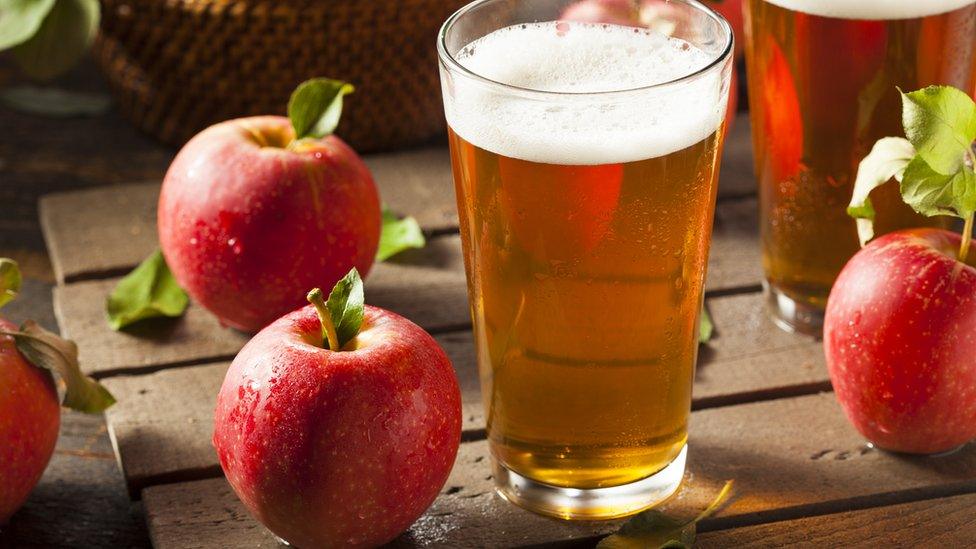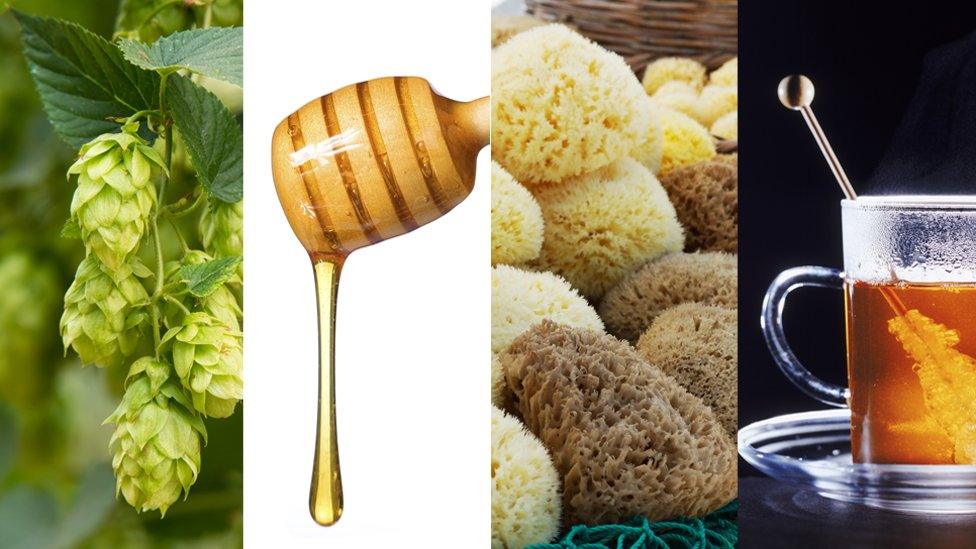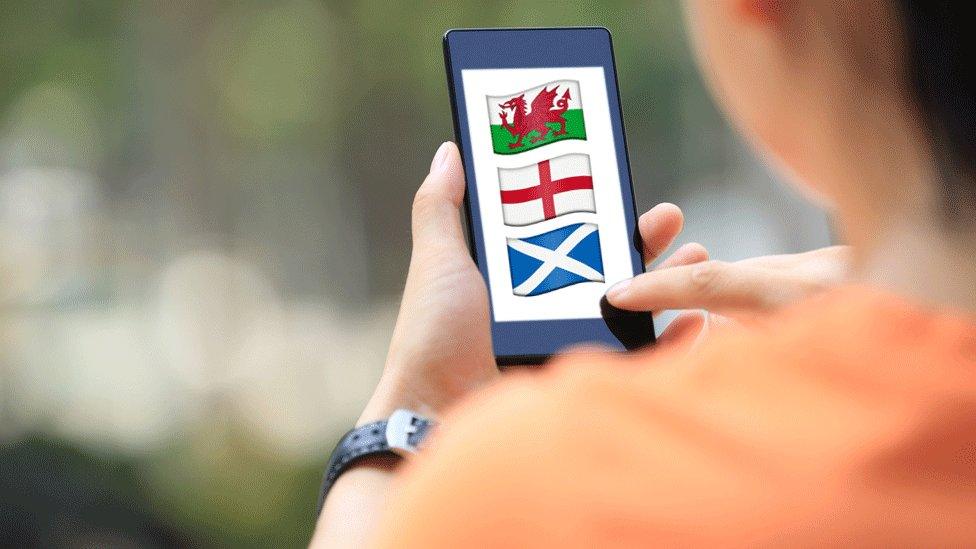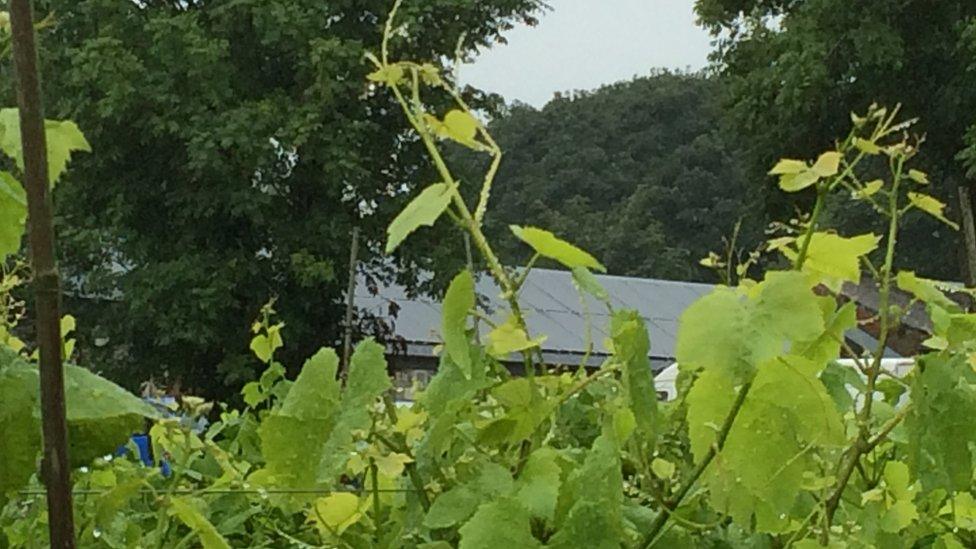Cider study finds unknown 'Wales-only' apples and pears
- Published
The Welsh Perry & Cider Society said the results were "incredibly exciting"
Researchers have uncovered 43 new varieties of apples and pears believed to be found only in Wales.
A £500,000 joint project by the University of South Wales (USW) and the Welsh Perry & Cider Society is looking at the heritage of orchards and cider-making in Wales.
It hopes to create an online catalogue of cider and perry fruit in Wales using their DNA traits.
The Welsh Perry & Cider Society said the results were "incredibly exciting".
The two-year project, which features a number of studies and aims, has tested leaves at the society's museum orchard, outside Llanarth, near Abergavenny, as well as other sites across the country.
Samples have been sent and compared to those recorded at the National Fruit Collection in Brogdale, Kent.
DNA results confirmed 12 cider apples and nine perry pears within the museum orchard are Welsh, with a further 22 unique varieties identified from elsewhere in Wales not registered with Brogdale's database and which are believed to be found only in Wales.
"It's incredibly exciting for us," said Jayne Hunt, heritage project manager at the Welsh Perry & Cider Society, based in Crumlin, Caerphilly county.
"The project has unearthed far more unique varieties than we ever expected - fruit that is probably found only in Wales, and which has never been recorded.
"For cider lovers with a patriotic streak, it could be just what they're looking for."

The society will also test trees for their "cider and perry potential" at its annual festival at Caldicot Castle later this month.
As part of the wider project, the researchers are also working with 14 community groups in Wales to regenerate old orchards and to possibly identify areas to plant new trees, as well as providing training, event support, and installation of interpretation details.
The university's George Ewart Evans Centre for Storytelling (GEECS) is also collecting stories about the modern cider-making tradition in Wales, which will be available online and through national archives, such as the People's Collection Wales.
"The stories we have reveal the people behind the tradition. We have collected stories about the many ways people's lives are connected to their orchards and to the history of cider making in Wales," said Dr Emily Underwood-Lee, who is leading the GEECS project.
"I hope that we'll have preserved lots of unique apple varieties and be better able to understand them both scientifically and culturally.
"I hope it will be funny, entertaining and something that people can really enjoy."
The project has been funded by a National Lottery grant.
- Published6 May 2016

- Published28 March 2017

- Published11 August 2016

- Published26 March 2016
